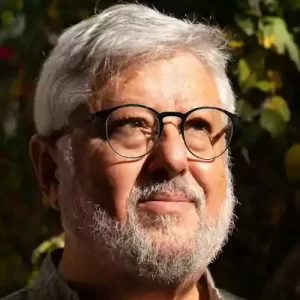A month into Israel’s war in Gaza, there’s a glimmer of hope for at least some of the hostages trapped in the Hamas-ruled enclave.
The Biden administration’s push for a humanitarian pause to facilitate the safe return of hostages appears to have made some headway following Secretary of State Antony Blinken’s second whirlwind trip to the region since the Oct. 7 attacks.
A source familiar with the negotiations confirmed to Al-Monitor that the US, Israel and Qatar are discussing a pause of up to 72 hours during which Hamas would release a small number of hostages. Axios first reported on the proposed pause.
Israeli Prime Minister Benjamin Netanyahu has ruled out a cease-fire, as demanded by Hamas, but said Monday his government would consider “tactical little pauses” to bring the hostages out. “An hour here, an hour there,” Netanyahu told ABC News.
The parties have already tested how this would work. A senior Biden administration official said that there were “assurances in place” last month that the Red Cross, which acts as a neutral mediator, could safely escort two American captives from Gaza back into Israel.
Negotiations are underway for a “larger package” of hostages whose release would require “a very significant pause” in the hostilities, the official said.
A source involved in indirect talks said freeing any number of hostages will be a carefully choreographed process, and Israel will need assurances that Hamas will uphold its end of the bargain.
“How do you create the right formula, the right sequence for Hamas to finalize and execute a hostage deal, but give Israel the guarantees that that pause is not going to be wasted without the return of hostages?” the source said.
As part of the agreement, Hamas would be expected to deliver a list of its captives, who intelligence experts say are likely split up and stowed away in the militants’ network of tunnels beneath Gaza. Some may be held by other groups, including Palestinian Islamic Jihad.
The Gulf state of Qatar, which has hosted Hamas’ political leaders in its capital for more than a decade, is the primary intermediary in negotiations over the estimated 240 Israeli and foreign hostages in Gaza.
Egypt, which shares a border with Gaza and whose intelligence service has contact with Hamas’ military wing, has also led negotiations on the hostages and the delivery of humanitarian aid. The Wall Street Journal reports that Egypt, along with Qatar, is negotiating the release of up to 15 hostages.
Sultan Barakat, a professor in public policy at Qatar Foundation’s Hamad Bin Khalifa University, said the initial release of two Americans was meant to demonstrate that Hamas’ leadership in Doha can exert influence over the group’s armed wing in Gaza, the Qassam Brigades.
Days later, Hamas released two more hostages, a pair of elderly Israeli women who were abducted from their kibbutz during the militants’ Oct. 7 rampage.
They were “very much a gesture to the Israelis that [Hamas] still has the will to negotiate, and we are able to access those hostages,” Barakat said during a Middle East Institute webinar.
The Israeli military was able to rescue a fifth hostage — a female Israeli soldier — suggesting it knows where at least some of the hostages have been stashed. The US military is flying unarmed drones over Gaza in an effort to locate the hostages, including as many as 10 Americans.
The clock is ticking on whether there can be a negotiated release of hostages
, said Gershon Baskin, a veteran peace activist and negotiator who until recently maintained contact with Hamas.
“Hamas is demanding a cease-fire,” Baskin said. “A cease-fire requires the Israelis to withdraw from positions that they’re holding on the ground and re-deploy. It’s very complex and very difficult.”
Nearly two weeks after launching its ground incursion, the Israel Defense Forces said Wednesday its troops had entered the heart of Gaza City, a stronghold for Hamas that was home to some 650,000 people before the war.
The Israeli bombing campaign in Gaza — where the death toll has passed 10,500, according to the Hamas-run Health Ministry — has added urgency to the negotiations. The militant group claims, although it has not offered evidence, that some of its hostages have died in Israeli strikes.
As Rina Bassist reports, many of the families have questioned whether the Israeli government’s dual goals of eliminating Hamas — including by destroying its tunnel hideouts — and rescuing the hostages are compatible with one another. Some are advocating for what would be a historic prisoner exchange with Hamas.
The last time Israel traded prisoners with the group — more than 1,000 Palestinians for a single soldier, Gilad Shalit, in 2011 — the current Hamas leader in Gaza, Yahya Sinwar, walked free. In every major speech since, Sinwar has pledged to secure the release of the Palestinian prisoners he left behind.
Baskin, who used his back-channel communications with Hamas to help secure Shalit’s release, said Israel should take Sinwar at his word.
“This is his life’s mission. He wants to accomplish that mission before he’s killed,”
Baskin said.
Israel is holding some 7,000 Palestinians in its prisons, mostly from the West Bank, according to Palestinian prisoner rights group Addameer. At least 559 of those prisoners are serving life sentences, the group said.
“There’s no other deal that Hamas is interested in other than ‘all for all,’”
Baskin said.
Originaly Published by Al-Monitor at https://www.al-monitor.com/originals/2023/11/hostage-deal-elusive-us-pushes-gaza-pause



